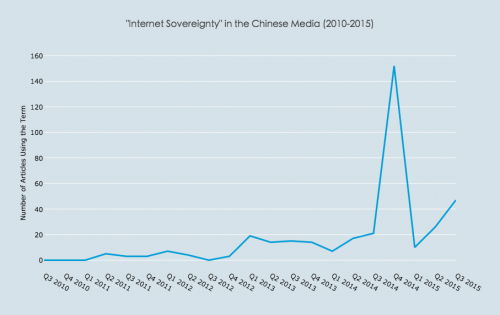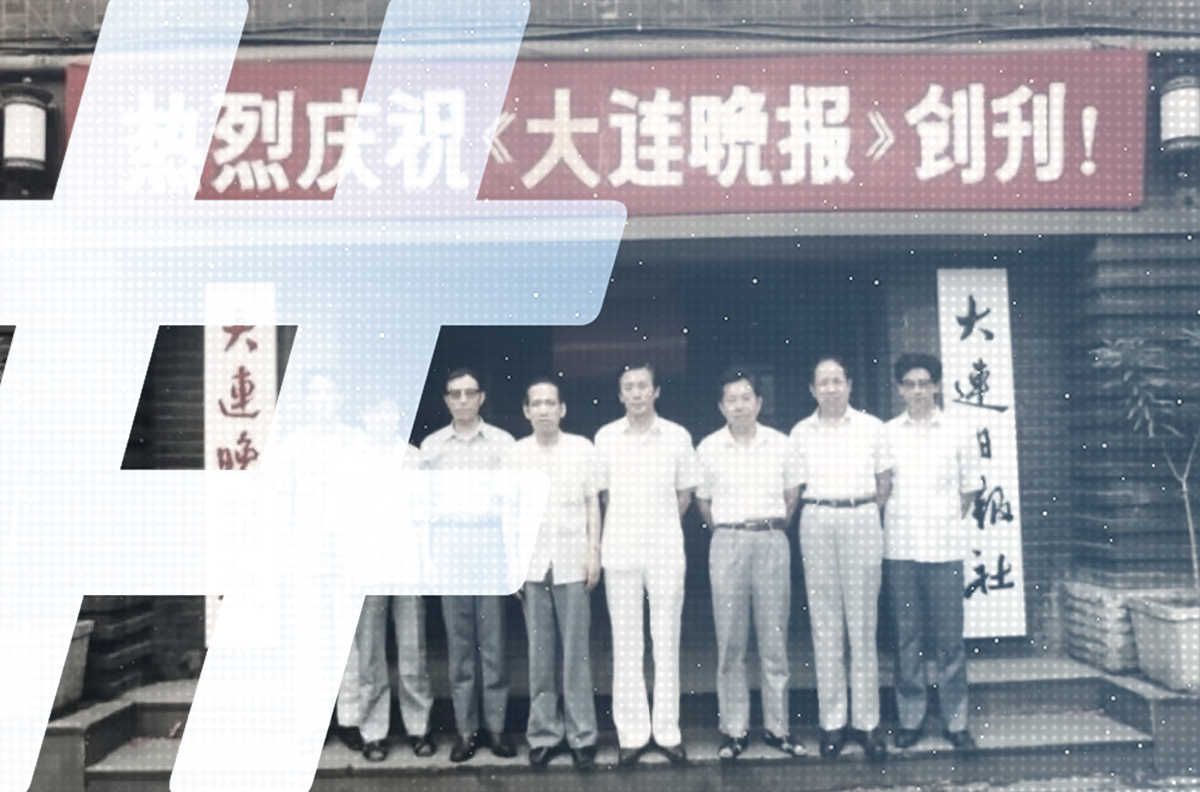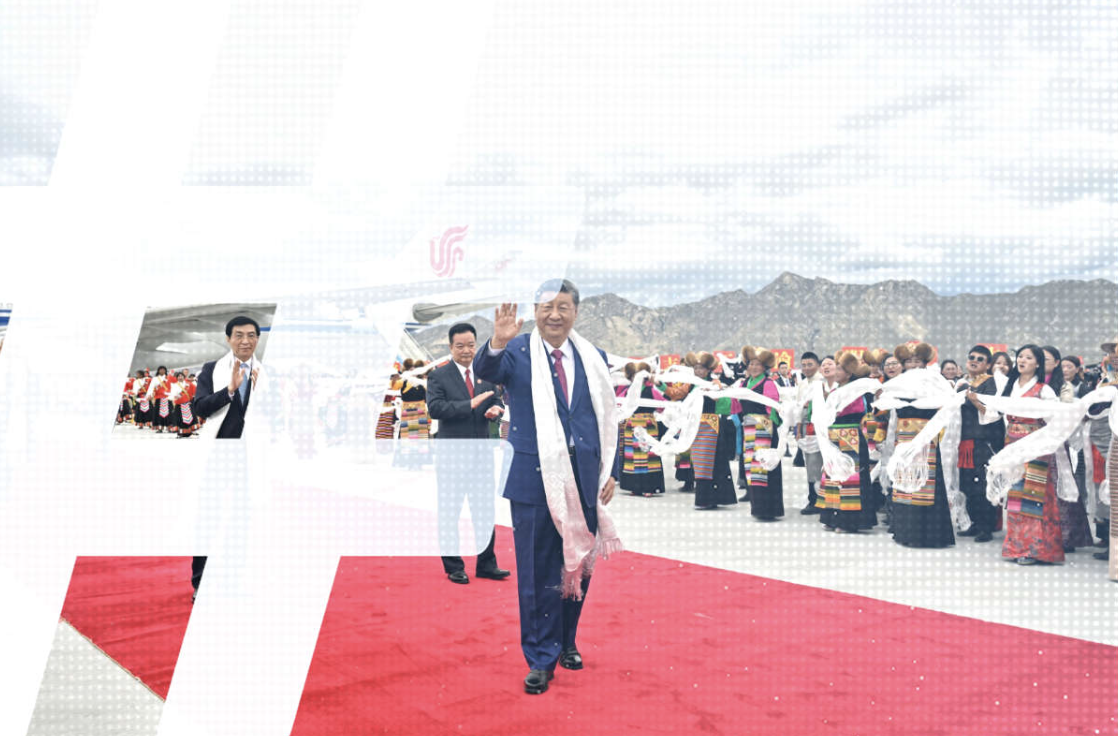Two people go out to sea in a single boat, battered and tossed by the wind and waves. Despite the treacherous shoals beneath, they bicker about who bears responsibility for their mutual hardship. All at once, a violent storm rises. Waves tower overhead. If they cannot lower the sails quickly, their boat is sure to capsize. But survival demands the unified strength of both. Finally, in the face of common peril, they decide to work together. They lower the sails and pilot ahead, until at last they come to calmer shores.
Speaking at an industry forum in Seattle last week, China’s cyber-security chief, Lu Wei, shared the above parable drawing on ancient Chinese wisdom to explain how, in the face of “a cyberspace as vast as the sea,” the United States and China must work together toward a “shared destiny.” “We are in the same boat,” he said. And where the Internet is concerned, we have in our sights the same “shore of happiness.”
But do we indeed?
In fact, the U.S.-China Internet Industry Forum— which reportedly “[rankled] the Obama administration by veering off the script agreed to for Mr. Xi’s carefully stage-managed visit” — exposes deep and abiding differences between China and the United States over the integrity and future of the global Internet. Lu Wei’s promised shore of “cooperative cyberspace” is a distraction from the more pressing matter at hand: China’s effort to remake the sea of cyberspace itself, with the acquiescence of American tech firms.
China is by no means the only party pushing for the balkanisation of the global Internet, and mounting threats to “net neutrality” have been the subject of debate for years. But no nation has so energetically promoted, in word and deed, the vision of national “Internet sovereignty” without the most basic respect for information freedoms.
The concept of “Internet sovereignty” first entered the stage in China with the publication in June 2010 of a State Council Information Office white paper on “The Internet in China,” coming just months after Google’s rancorous exit from the country. (At the time, Columbia professor and net neutrality expert Tim Wu said the steps laid out in the white paper went “way beyond the rules of any major country.”)
Under Xi Jinping, who in 2014 became head of a new Central Leading Group for Cybersecurity and Informatization (with Lu Wei as chief of its General Office), “Internet sovereignty” has enjoyed a much stronger profile. The CLGCI held its first session in February 2014, and it is after this point that we see a rather dramatic rise in occurrence of the term “Internet sovereignty,” or wangluo zhuquan (网络主权), in China’s media.

The dramatic peak in use of the term “Internet sovereignty” above, occurring during the fourth quarter of 2014, is what we might call the “Wuzhen peak,” corresponding to China’s first World Internet Conference, held in November 2014 in the Zhejiang water town of Wuzhen (and nicknamed the “Wuzhen Summit”). This event, which Chinese leaders said at the time they hoped to fashion as the “Davos of the East” (东方达沃斯), promises to become an annual international forum at which China can showcase the strength of its domestic Internet industry and publicise the government’s vision of an international (as opposed to global) Internet comprising internally “secure” national Internets.
In a prepared statement for the “Wuzhen Summit,” read out by vice-premier Ma Kai (马凯), Xi Jinping urged the creation of a “multifaceted, democratic and transparent governance system for the international Internet.” The leadership’s underlying political objectives became more explicit when the hosts of the conference tried to get attendees to sign on to a draft declaration on Internet governance by slipping it under their hotel room doors at 11PM on November 20, right at the tail end of the conference.
One portion of the draft declaration, which was later hastily withdrawn, read:
While enjoying rapid development, the Internet has posed new challenges to national sovereignty, security and development interests, which requires the international community to meet urgently and seriously expand consensus and strengthen cooperation.
We call on the international community to work together to build an international Internet governance system of multilateralism, democracy and transparency and a cyberspace of peace, security, openness and cooperation.
“Democracy” and “openness” sound wonderful, until you realise that in this instance China is talking not about the principles adhering the fabric of cyberspace, but rather about pulling rank in the system of international governance. A “democratic” system, in other words, would be one in which China’s domestic political controls on information are legitimised and respected as a matter of inviolable national sovereignty. And we must remember that in the borderless space of the Internet, such restrictions can and do have ramifications for all users anywhere.
Lu Wei, the cyber chief, expressed the leadership’s vision of Internet sovereignty more distinctly during a Chinese New Year banquet hosted in February this year by the Cyberspace Administration of China — and attended by many foreign dignitaries. “We live in a common online space,” Lu Wei told his guests. “This online space is made up of the internets of various countries, and each country has its own independent and autonomous interest in Internet sovereignty, Internet security and Internet development. Only through my own proper management of my own internet, [and] your proper management of your own internet . . . can the online space be truly safe, more orderly and more beautiful.”
Inside China, “sovereignty” has equalled repression. It was Lu Wei who piloted the broad campaign against the influential “Big V” (or “verified”) users of the Sina Weibo platform in 2013, followed by harsh penalties threatened against Internet users who propagated “irresponsible rumours.”
On July 1 this year, China’s legislature passed a new national security law stating explicitly that national sovereignty extended to the Internet. The law laid out rigid security requirements for networks across a range of “critical industries,” stoking fears that it could even put the commercial secrets of foreign companies operating in China at risk.
Are the United States and China indeed, as Lu Wei suggested last week, “two sharing a boat”?
Certainly, there are shared agendas — such as, for example, cyber espionage. But as for shared values on information freedoms and Internet governance, this is a much stickier issue. In fact, the U.S.-China Internet Industry Forum, of which the conference in Seattle last week was the eighth edition, has over the years served only to sharpen the gap, despite the Chinese Communist Party’s hope it might become a vehicle through which to reach greater consensus along lines it finds acceptable.
For their part, international media have been somewhat confused over the nature of the forum itself. Earlier this month, the Chinese-language service of Germany’s Deutsche Welle wrote that President Xi Jinping would attend a technology forum “sponsored by Beijing.” Over at Fortune.com, the forum was apparently all the doing of China’s president, who was “making the most of his time [in the United States] by organising a high-profile tech gathering.” The New York Times anonymously quoted “another person with knowledge of the matter” to report that the forum “is being co-hosted by Microsoft.”
It should be no secret at all that, yes, the forum is co-hosted by Microsoft, as it has been since first convened in 2007 as a joint initiative of software giant and the Internet Society of China (ISC), an ostensible industry association formed in 2001 to “promote development of Internet in China and make efforts to construct an advanced information society.”
It so happens that Microsoft China is also a member of the ISC, whose deputy directors (25 in all) are a list of who’s-who in China’s tech industry. They include Jack Ma (马云), the chairman of Alibaba Group, Pony Ma (马化腾), the founder of Tencent Inc., Ding Lei (丁磊), founder and CEO of Netease, and Wang Gaofei (王高飞), the CEO of Weibo Corporation. The current chairman of the ISC is Wu Hequan (邬贺铨), an engineer who said last year that China’s “cyberpower” was an essential part of Xi Jinping’s “China Dream,” and who was present in Seattle for Lu Wei’s address.
For Microsoft, the U.S.-China Internet Industry Forum has always been about the company’s engagement with China. As vice-president for Global Corporate Affairs, Pamela Passman, wrote of the forum in 2010, the two sides had “discovered a structure and rhythm for productive discussions on Internet policy.”
Inside China, the importance of the U.S.-China Internet Industry Forum is professed with much more clarity. It is accorded a level of bi-lateral significance that is not reciprocated — far from it — by the United States government.
The 21st Century Business Herald wrote recently that “the U.S.-China Internet Industry Forum was created . . . . with the goal of promoting dialogue and cooperation between the Internet industries of China and the United States.” In Chinese, the above language is indefinite — zhongmei liangguo (中美两国) — possibly suggesting the event is a more formal state-to-state arrangement. In an interview with the same paper, Wang Yukai (汪玉凯), deputy director of the E-Government Committee of China’s National Academy of Governance, said of the forum that “this institution is the most important mechanism for coordination of national information and its management.”
On the sidelines of the forum last week, Zhou Hongyi (周鸿祎), the CEO of Internet security firm Qihoo 360 Technology, told Guangzhou’s Southern Metropolis Daily that “the main purpose and aim of this forum was to serve as a platform for mutual understanding and communication between the governments and industries of China and the United States.” Here again, was the ambiguous zhongmei liangguo, possibly insinuating a state-to-state interaction.
But aside from the meeting’s reported “rankling” of the Obama administration ahead of Xi Jinping’s state visit, what can we say about how the U.S.-China Internet Industry Forum has been regarded by the United States?
Addressing the forum on December 10, 2009 — when the third edition was held in San Francisco — Under Secretary for Economic Growth, Energy, and the Environment Robert D. Hormats struck a positive note, praising China for its progress on the provision of internet services and stressing the importance of international cooperation. “I applaud China similarly for its commitment to foster its ever-expanding communications network,” he said
At the same time, Hormats stressed that information freedoms were key, not just for the United States but for the world:
“The right to freedom of expression and the importance of the free flow of information over the Internet were affirmed by all participating governments at both phases of the World Summit on the Information Society in 2003 and 2005, including the Tunis Commitment, and continue to form the foundation of U.S. Government efforts on Internet freedom around the world.”
By April 2013, when the forum was back in Beijing, the tone had soured considerably. At that session, Hormats chastened his hosts, affirming the importance of the “existing multi-stakeholder arrangement of Internet governance,” against which China’s leaders were by this time actively positing a more state-centred approach the under secretary referred to as “information nationalism.”
The openness and flexibility of these [international governance] institutions have allowed the Internet to adapt and grow into the world’s most compelling platform for information exchange . . . .
That is why the United States remains committed to strengthening this multi-stakeholder system.
We were concerned that the document [introduced at the WCIT in 2012] could have been used in future attempts to erode international multi-stakeholder Internet governance and with it to strengthen those who believe in various types of “information nationalism.”
This is one area where the United States and Chinese officials have significant differences. We believe a top-down, government-led approach to guiding the future of the Internet would be fundamentally flawed.
These “significant differences” persist today. Reporting on the forum last week, the Seattle Times noted that there was, despite “occasionally upbeat commentary,” “significant tension between U.S. and Chinese business and government interests.” The most fundamental tension concerns the question of governance — a “multi-stakeholder Internet governance” system versus a network of state-centred Internet sovereignties.
The Chinese Communist Party recognises — as Lu Wei said last week — that the Internet has “greatly pushed forward the progress of human society.” It dreams, as Wu Hequan said, of “cyberpower.” But the Party’s extreme mistrust of the forces a freer cyberspace might unleash on its political monopoly has become a central, defining animus now best manifested in the notion of Internet sovereignty.
It is no wonder, in this light, that “hostile forces,” the Party’s favoured epithet for unspecified threats to its leadership, is now used routinely to refer to perceived threats in cyberspace.
The Party understands that it must shape the future of the Internet if it is to maintain its rule, and so it is determined to remake cyberspace as a sovereign space. It believes the sheer size of China’s market — “a paradise for U.S. hi-tech companies,” according to Lu Wei — will empower it to accomplish this objective.
It is a dangerous bargain Lu Wei is offering for the treasures of China’s cyber shores. But have no illusions: In the realm of cyberspace, sharing a boat with China will mean acknowledging its claims of sovereignty over the sea itself.




















